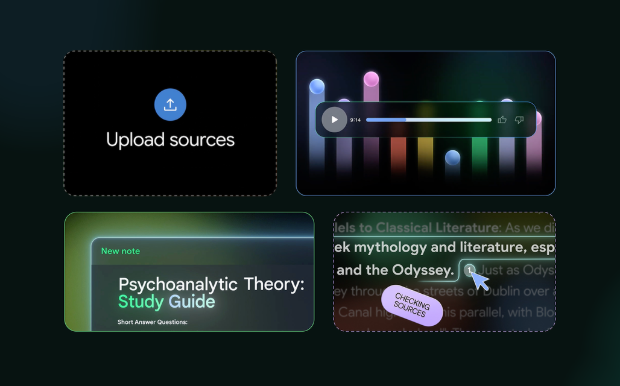Developing AI Pedagogical Practices
A new classroom technology, such as AI, requires new pedagogical approaches

Tools and ideas to transform education. Sign up below.
You are now subscribed
Your newsletter sign-up was successful
Since the emergence of ChatGPT, there has been much talk in education about artificial intelligence (AI) apps and tools. As you are probably aware, much of the discussion has been focused on how AI will replace teachers and how students will use AI to write their papers and complete assignments and projects.
While both of those issues may have some merit, it is important to reshape how we as teachers approach the use of AI in the classroom as we enter the new school year. AI is here to stay and will be a part of our students’ future, so we need to account for it in our instruction and their learning.
Here are some new pedagogical practices that you may want to adopt around AI during instruction, student engagement, and assessing learning.
AI Pedagogical Practices: AI for Instruction
When it comes to AI and instruction, creating new approaches to accommodate it is going to be necessary. For example, we can develop lessons and activities that involve ChatGPT that involve critical thinking and make it less likely that students simply rely on AI for an answer. We also can model for our students how to use AI ethically and effectively as part of their learning, writing, and research processes. Students can even be shown how to use AI for tutoring and personalized academic support.
Beyond branded AI platforms, teachers already use different technology tools that rely on AI to put together and share content with students when planning and during lessons. In fact, we use Google Slides, Canva, and PowerPoint to put together presentation materials, and all of these have some AI features that provide background templates, images, and/or editing features. Duet AI within Google Workspace Labs has started to make a suite of AI-generated tools available that will be helpful to teachers during lesson planning and facilitation.
If you also want to include teaching students about AI, Google Arts and Culture has a robust website dedicated to AI and its connection to the real world that would be a nice complement.
For instruction itself, ChatGPT can be used to prepare for class by generating lesson plans, quizzes, and more.
Tools and ideas to transform education. Sign up below.
AI for Engagement
As you are aware, student engagement is an extremely important part of our pedagogical practices. After instruction, we must allow students the time, space, and resources to explore content in exciting ways.
The good news is that AI has already been incorporated into many tools that are excellent for engagement. For example, Google Earth provides a great way for students to be immersed into 3D and aerial views of places around the world, which is a perfect engagement complement in a social studies, geography, or anthropology class and even virtual field trips.
Game-based education apps also provide AI-supported engagement opportunities. For example, Roblox and Minecraft use AI for creation and include bots, and both tools are just getting started with generative AI capabilities.
By letting students know that AI technology has made all of these opportunities possible, you can help them to embrace AI as part of their creative learning processes.
AI for Assessment
It is not easy assessing learning for dozens (elementary school) or hundreds (middle/high school) by one teacher. If we want to be able to meet the individual needs of learners and maintain a sense of their progress, we need to use systems to support our practices.
Fortunately, we can incorporate AI into our assessment practices by relying on the use of education apps. For example, both Quizlet and Kahoot! use AI algorithms to support question development in some capacity, and Conker uses AI to create quizzes. In addition, the automation within these types of apps is supported by AI, particularly in assessing learners’ facility with content, moving students forward to more advanced content when questions are answered correctly, and providing additional tips and instructions when questions are answered incorrectly.
By making the use of AI as part of your overall assessment practices, you can leverage real-time and efficient data points on how students are progressing and track if they are meeting learning objectives and discover which specific supports they may need.
Again, AI is going to be part of our students’ future. You can still follow guidance on preventing cheating by students, yet you should also embrace AI in ways that would amerolitate the need to do so, such as by creating more complex assignments that can’t be answered by a simple AI prompt. Instead of coming up with policies prohibiting its use, leverage the positive aspects of it to elevate teaching and learning experiences for yourself and your students, while previewing what is to come.
Dr. Stephanie Smith Budhai is faculty member in the College of Education and Human Development at the University of Delaware, focusing on Educational Technology, Learning Design, and Justice-centered Pedagogies. She holds two national education technology leadership positions on the Information Technology Council and as Chair of the Culture and Climate Committee for the Society for Information Technology and Teacher Education (SITE). She holds a Ph.D. in Learning Technologies, and a M.S. in Information with a specialization in Library and Information Science, and K-12 teaching certifications in Technology Education, Instructional Technology and Business, Computers, Information Technology, Special Education and Elementary Education. Dr. Smith Budhai is the 2021 SITE Emerging Leader and the 2017 ISTE Awardee for Excellence in Teacher Education. She is also a Nearpod, and VoiceThread Certified Educator. Dr. Smith Budhai has more than a decade of online teaching experience, and has published myriad books (two have been translated into Arabic), articles, and invited editorials surrounding the use of technology and online learning in education. A few of her book publications include:
- Critical AI in K-12 Classrooms: A Practical Guide for Cultivating Justice and Joy
- Best Practices in Engaging Online Learners through Active and Experiential Learning Strategies
- Leveraging Digital Tools to Assess Student Learning
- Nurturing Young Innovators: Cultivating Creativity in the Classroom, Home and Community
- Increasing Engagement in Online Learning: Quick Reference Guide
